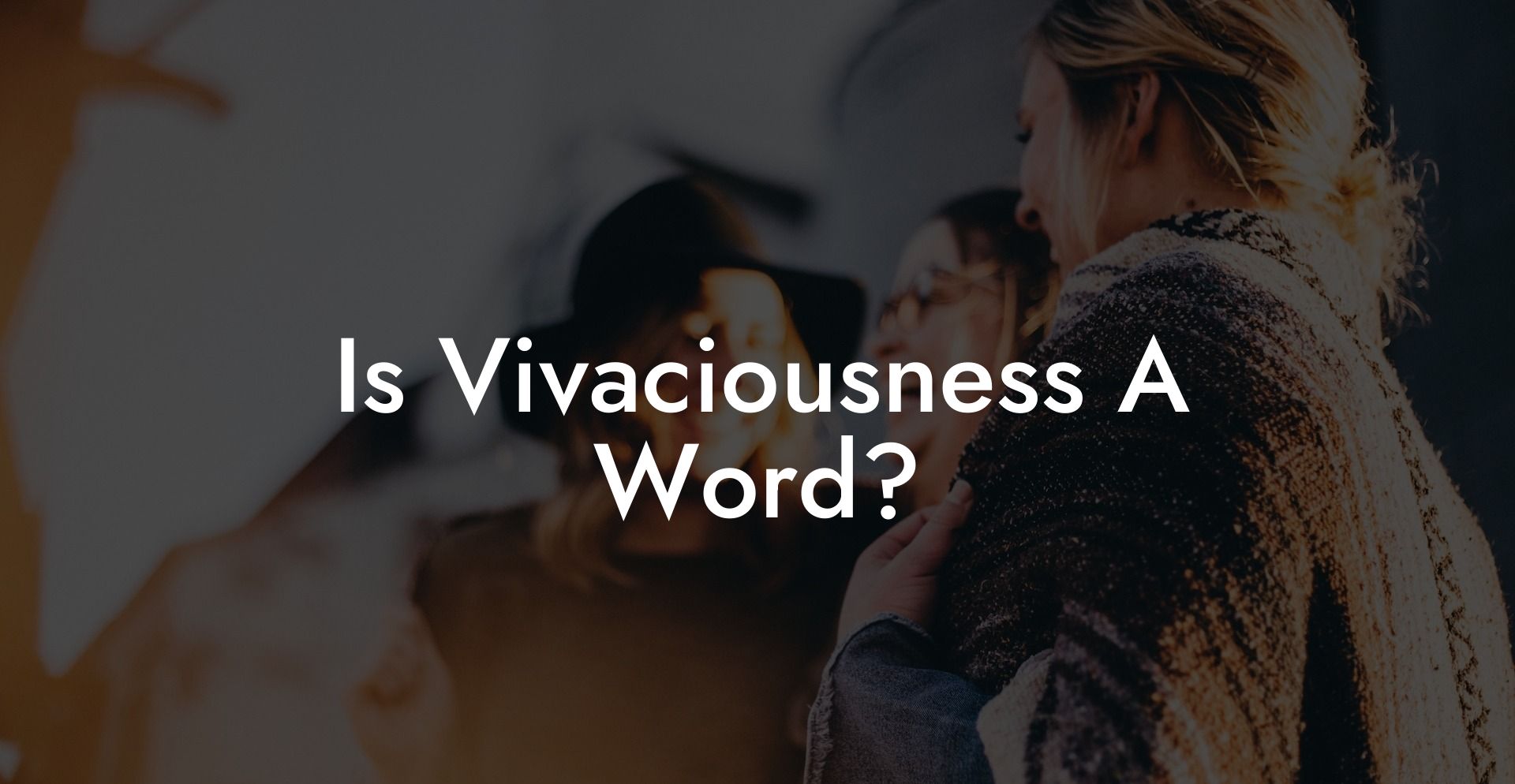Language is ever-evolving, with words constantly being added, modified or falling out of use as societal norms and sensibilities change. In this ocean of linguistic creativity, we sometimes come across terms that spark curiosity and debate among language enthusiasts. One such word is 'vivaciousness' - an intriguing term that has managed to maintain its mystique and provoke questions surrounding whether it's even a valid word at all. In this article, we will explore the world of vivaciousness, find out if it's rightfully claimed its place in the English language, and examine its significance in the broader schemes of monogamy, polyamory, and relationships.
Is Vivaciousness A Word Table of Contents
The quest to determine if vivaciousness is a word first involves understanding its origins and meaning. At its core, vivaciousness is derived from the adjective 'vivacious,' which has Latin roots in 'vivax,' meaning 'lively or spirited.' The term 'vivacious' is often used to describe someone with a vibrant, energetic, and animated personality, typically containing a hint of charm and allure. So, in essence, vivaciousness is the noun form of vivacious, describing the state of having a lively and spirited character.
Despite its clear roots and established definition, vivaciousness has faced scrutiny over its legitimacy as a recognized word. The dilemma primarily arises due to the existence of an alternative form of the noun - 'vivacity.' While vivacity is the more commonly accepted and widely used term, both words share the same origin and convey the same meaning, with vivaciousness generally considered a more informal variation.
The Oxford English Dictionary (OED) and Merriam-Webster's Dictionary include both vivaciousness and vivacity, acknowledging the coexistence of both terms. However, language purists often argue that it's more fitting to use vivacity due to its longstanding presence in the literary world, thus casting doubts over vivaciousness' validity as a term.
Example
To better understand the usage of 'vivaciousness' and 'vivacity' in context, let's consider a realistic example. Imagine you're describing a person you've recently encountered at a social event who possessed an infectious energy and enthusiasm.
You could choose to say, "I was struck by her vivaciousness and couldn't help but be drawn to her magnetic charm." Alternatively, you could opt for the more traditional, "Her vivacity was impossible to ignore, and she effortlessly commanded attention with her effervescent personality."
In both cases, the message conveyed is the same, with the choice of vivaciousness or vivacity mostly a matter of personal preference and the desired degree of formality. Language, after all, is a tool of expression and communication, and as long as the message is effectively conveyed, the word choice shouldn't be a hindrance.
So, is vivaciousness a word? The evidence points to a resounding yes, albeit with a more informal and versatile usage compared to its established cousin, vivacity. Words are shaped by society, usage, and most importantly, the people who use them. As we explore topics like monogamy, polyamory and relationships on The Monogamy Experiment, understanding and embracing the nuances of language is essential in fostering open and meaningful discussions.
If you found this article engaging and informative, why not share it to spread the word on vivaciousness and enlighten your friends in the process? Also, be sure to explore our comprehensive guides on a wide array of topics pertinent to relationships, monogamy, and polyamory – all available for your reading pleasure on The Monogamy Experiment.













